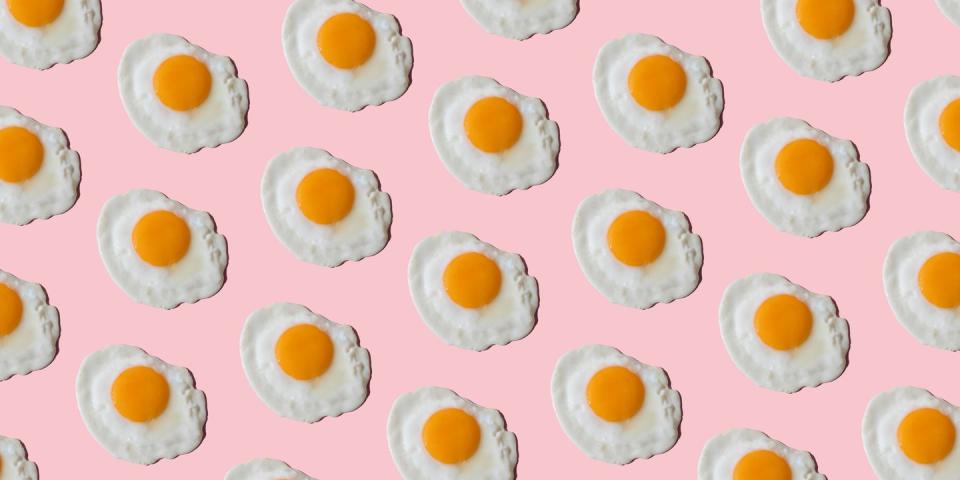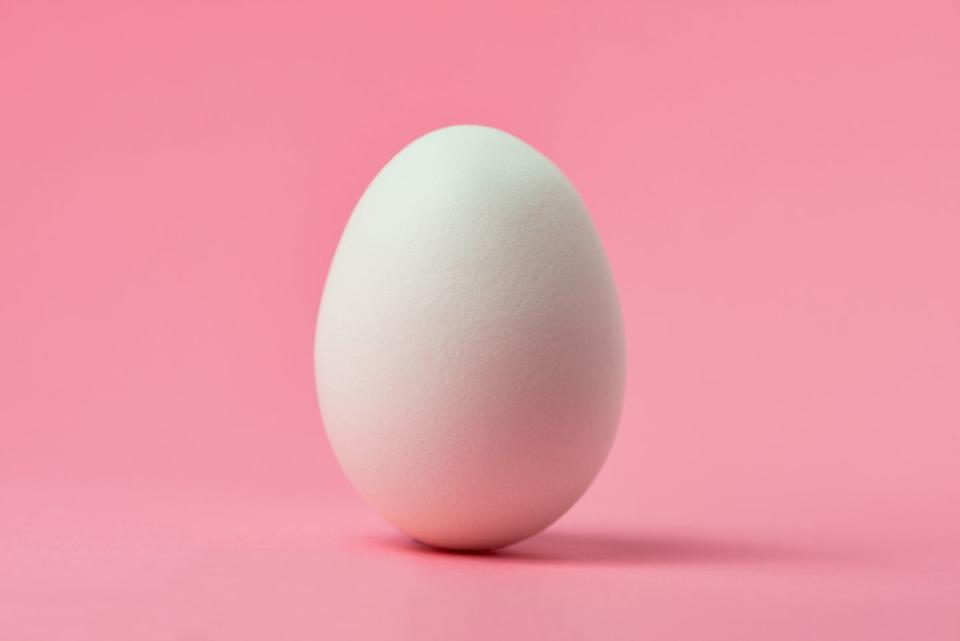So You Want to Know: Can Vegetarians Eat Eggs?

Ask 10 people if eating eggs is okay if you’re following a vegetarian diet and you’re liable to get a mix of different answers. That’s because not everyone defines “vegetarian” the same way, and people choose to eat vegetarian — however they define it — for different reasons, which dictates what they feel good about putting into their mouths.
“I’m going to give you the favorite answer of all dietitians — it depends,” says Manju Karkare, MS RDN LDN, a registered dietician in North Carolina. “It depends on the person and their beliefs and lifestyle, as well as what kind of situation that they grew up in,” she says.
First off, what exactly is a vegetarian diet?
If you don’t think too hard about it, “vegetarian” is simply a diet that does not include meat; instead vegetarians choose a diet that is heavy on grains, vegetables and fruit, nuts and legumes and the like. That is all true.
But after that, it gets complicated. Think of “vegetarian” as a giant beach umbrella, under which there are different kinds of vegetarians hanging out together on their towels. Here are just a few:
Lacto-ovo vegetarians. These folks don’t eat meat, poultry or fish protein alongside their plants, but they do eat eggs and drink milk and consume dairy products. “Eggs are generally considered vegetarian in America because they do not contain animal flesh,” says Stefani Sassos, MS, RDN, CSO, CDN, Good Housekeeping’s registered dietician. “I personally consider eggs to be vegetarian.”
Vegans. People who follow a vegan diet, on the other hand, are vegetarians who choose to forgo any product that comes from an animal. This includes not just animal flesh, but milk, cheese, butter, eggs and even often things like honey, because it comes from bees.
Pescatarians. Pescatarians eat a vegetarian diet with an exception for fish, but they don’t eat red meat or poultry. They are usually okay with eating eggs and don’t consider fish to be the same as “meat,” and so, think of themselves as vegetarians.
Complicating things even further, “vegetarian” doesn’t mean exactly the same thing in other parts of the world as it does here, points out Karkare, who was born in India. “Elsewhere in the world, the concept of being vegetarian has to do with not harming the animal,” she says. That includes not taking milk away from the baby animal, which is more aligned with veganism, she says.

But veganism “is a really Western world term,” she says. Growing up, Karkare drank water buffalo milk, produced on a small farm in such a way that consumers only got milk that the calf would not drink in any case, says Karkare. “It was part of how the dairy was run: the milk came from animals who were continuing to produce milk that was not for the calf,” she says. In that way, the thinking was that no animals were harmed, she says. Here, cows are usually bred for milking, often in harsh conditions, which many vegetarians and vegans point out is harmful to the animals. And even if no animals were directly harmed in the production of milk, a strict vegan would still not drink it, as vegans are philosophically opposed to using animals for human benefit.
Eggs are a similar case, and are also consumed widely in India, Karkare says, because they are not fertilized, and hence are not thought to be harmful to animals — the egg would never develop into a chicken anyway. Animal rights activists (as well as people who eat vegan) point out that chickens that are bread to lay eggs are inherently harmed and so eggs should not be part of a vegetarian diet.
Why should a vegetarian consider eggs?
In short, they have a lot to offer, nutritionally speaking. “Eggs are an extremely versatile and affordable protein choice,” says Sassos, who adds that healthy people can safely have one to three a day. What’s more, they are a “complete protein source, meaning they contain all nine essential amino acids which the body cannot make on its own and must obtain through food,” she says. Add to that eggs' vitamins and minerals, like selenium and vitamin D, as well as choline, a nutrient that is critical for brain and nervous system function, she says.
So can vegetarians eat eggs or not?
The better questions are: why did you choose a vegetarian diet and what kind of vegetarian are you? Also, do you like eggs and/or do you need eggs to get the right balance of nutrients the way you live your life? These are all things to weigh, says Kankare.
Some vegetarians, including vegans, don’t eat eggs in part because of the way the chickens who lay them are treated in conventional farming practices. Others say it doesn’t matter how they’re farmed: Eating eggs is using the fowl’s reproductive system for human purposes, and so it causes them harm.
Still others, says Kankare, don’t like eating eggs for the reasons above, but will eat them in other foods such as bakery items — as long as they’re not sitting there on their plate. “Food is very intimate, and not just about nutrition and hunger but about pleasing your palate,” she says.
Overall, whether you eat eggs as a vegetarian or not is really up to you, says Sassos. “This is truly a personal decision based on how an individual defines the limits of their vegetarian diet as well as their own dietary preferences,” she says. If conventional farming practices give you pause, look for Certified Humane eggs or other third-party certifications that encourage responsible farm animal practices, she says. There are also plant-based scrambled options on the market that might fulfill your needs. And if you’re vegan, you’ll want to piece together a balanced diet, including all the nutrients you need, without eggs or any other animal product.

You Might Also Like

